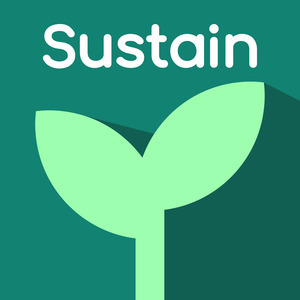Episode 222
Nathan Schneider on his new book "Governable Spaces: Democratic Design for Online Life"
March 1st, 2024
36 mins 38 secs
About this Episode
Guest
Nathan Schneider
Panelist
Richard Littauer | Leslie Hawthorne
Show Notes
In this episode of Sustain, host Richard is joined by Leslie Hawthorne, and features a discussion with guest Nathan Schneider, an assistant professor of media studies and the director of the Media Economics Design Lab at the University of Colorado Boulder, about his new book,”Governable Spaces: Democratic Design for Online Life.” The conversation explores the motivations of the book, which stems from Nathan’s experiences in running online spaces and his realization of the inadequacies in tools available for practicing democracy in these spaces. Richard, Leslie, and Nathan delve into the historical development of online spaces, the challenges in creating democratic governance online, and the potential impact on global democracy. The discussion also touches on open source sustainability, governance failures and potentials in open-source projects such as Git, and the role of protocols in shaping online communities. Additionally, Nathan argues for diverse forms of governance and shares examples of successes in opensource governance. Press download now to hear more!
[00:01:40] Nathan explains the motivation for his book, “Governable Spaces.”
[00:05:24] The discussion dives into the concept of the book with Richard questioning the practical existence of such spaces based on the book’s definition. Nathan confirms the book focusses on the absence of democratic infrastructures in digital lives and the lack of support for cooperatives online.
[00:09:09] Richard relates the discussion on culture and democracy to media archaeology and questions how this relates to open source sustainability. Nathan acknowledges the importance of the topic and brings up the example of Git to discuss absences in open source governance.
[00:13:41] Leslie asks Nathan to elaborate on his views regarding the lack of governance and democratic sharing of responsibilities within the structure that have developed, particularly in open source. Nathan responds by identifying two approaches to this issue. He first addresses the cultural aspect, and then the technical and legal aspects.
[00:16:44] Leslie further inquires whether Nathan has considered in his book that the lack of governance could be due to the backgrounds of early internet designers, who were not from marginalized or vulnerable populations and thus did not prioritize governance structures. He talks about the colonization metaphor in the early internet’s language, specifically the term “homesteading,” and how it reflects a flawed understanding of democracy and governance.
[00:18:18] Nathan mentions Jo Freeman’s essay, “The Tyranny of Structurelessness,” which warns against the absence of explicit governance leading to the rise of implicit governance by those already privileged. He also emphasizes that despite the dominant structures, there are examples of democratic practices in online spaces, especially among non-dominant identity groups.
[00:20:33] Richard questions the robustness of democracy and brings up a point from Nathan’s book that raised some questions to him. He also wonders it was difficult for Nathan to use terms that don’t hold up under scrutiny for his book, and Nathan acknowledges the complexity of the term “feudalism,” and expresses gratitude for medieval governance structures.
[00:24:50] Nathan and Richard discuss the topic of crypto, and Richard appreciates how Nathan’s book puts together the chapter on crypto with transformative justice and brings up that the book doesn’t go deep into the specifics of internet protocols. Nathan expresses a strong interest in protocols as a means of social organization and elaborates on the significance of crypto and blockchain protocols in breaking away from traditional centralized models.
[00:30:30] Leslie asks Nathan about the Fediverse and federated social networking. Nathan shares his positive view on the Fediverse and discusses his experience co-founding a Mastodon server, acknowledging the potential for creating governable spaces while also recognizing the challenges in ensuring democratic governance.
[00:32:40] Find out where you can get Nathan’s book for free and to purchase.
Quotes
[00:02:52] “The tools we have are really crappy for practicing democracy.”
[00:05:57] “While working on this book, I started realizing how much my interest is in what we don’t have, it’s in the absence of our digital lives.”
Spotlight
- [00:33:40] Leslie’s spotlight is her community devroom co-organizers for FOSDEM’24: Shirley Bailes and Laura Czajkowski.
- [00:34:04] Richard’s spotlight is the Vermont Arts Council.
- [00:34:32] Nathan’s spotlight is a group called the Exit to Community collective.
Links
- SustainOSS
- SustainOSS Twitter
- SustainOSS Discourse
- podcast@sustainoss.org
- SustainOSS Mastodon
- Open Collective-SustainOSS (Contribute)
- Richard Littauer Socials
- Leslie Hawthorne LinkedIn
- Nathan Schneider Website
- Nathan Schneider X/Twitter
- Governable Spaces-Democratic Design for Online Life by Nathan Schneider
- The Tyranny of Structurelessness by Jo Freeman
- Start.coop
- FOSDEM ’24 Community devroom
- Shirley Bailes LinkedIn
- Laura Czajkowski LinkedIn
- Vermont Arts Council
- Exit to Community
Credits
- Produced by Richard Littauer
- Edited by Paul M. Bahr at Peachtree Sound
- Show notes by DeAnn Bahr Peachtree Sound
